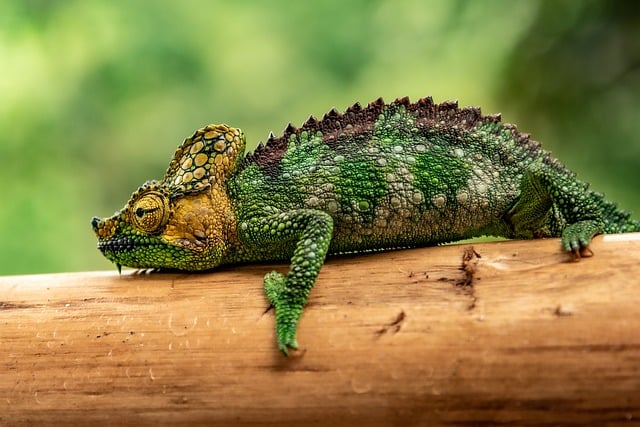Create a Balanced Diet for Your Reptile
Providing the right food for your reptile is essential to their health and well-being. A balanced diet can help prevent nutritional deficiencies, support growth and development, and even extend the lifespan of your pet.
A balanced diet for reptiles includes a variety of foods that provide the necessary nutrients for optimal health. The key is to provide a mix of protein, fat, carbohydrates, vitamins, and minerals in the right proportions.
Step 1: Research Your Pet’s Dietary Needs
Different species of reptiles have different dietary needs. For example, carnivorous species such as snakes and lizards require high amounts of protein, while herbivorous species like tortoises need more fiber and lower protein levels.
Research the specific dietary needs of your pet to ensure you’re providing them with the right foods. You can consult with a veterinarian or reptile expert to determine the best diet for your pet.
Step 2: Offer a Variety of Foods
A balanced diet for reptiles includes a variety of foods to provide all the necessary nutrients. Some examples of healthy foods for reptiles include:
- Live insects like crickets, mealworms, and waxworms (for carnivorous species)
- Frozen or live vegetables like kale, collard greens, and squash (for herbivorous species)
- Tubers like sweet potatoes and yams
- Commercial reptile pellets or powders as a supplement
Offering a variety of foods can help ensure your pet is getting all the necessary nutrients. Rotate your pet’s food every few days to keep things interesting and prevent boredom.
Step 3: Provide Fresh Water
Provide fresh water at all times to keep your reptile hydrated. Use a shallow dish or water bowl that allows your pet to easily access the water.
Change the water daily to prevent bacterial growth and ensure it remains clean and fresh.
Step 4: Avoid Common Nutritional Deficiencies
Avoid common nutritional deficiencies by providing a balanced diet. Some common nutritional deficiencies in reptiles include:
- Protein deficiency (common in herbivorous species)
- Calcium deficiency (common in young or juvenile reptiles)
- Vitamin D3 deficiency (common in cold or cloudy climates)
Treat your pet with a calcium supplement or vitamin D3 powder to ensure they’re getting enough of these essential nutrients.
Step 5: Monitor Your Pet’s Health
Monitor your pet’s health and adjust their diet accordingly. Look for signs of nutritional deficiencies, such as:
- Poor appetite or lethargy
- Soft or runny feces
- Lack of energy or activity
If you notice any of these signs, consult with a veterinarian to determine the cause and adjust your pet’s diet accordingly.
Conclusion: Creating a Balanced Diet for Your Reptile
Creating a balanced diet for your reptile requires research, variety, and attention to detail. By following these steps and providing a mix of protein, fat, carbohydrates, vitamins, and minerals, you can ensure your pet is getting all the necessary nutrients for optimal health.
Tags:
- Reptile nutrition
- Dietary needs of reptiles
- Pet care tips
- Retailer advice
- Diet and nutrition for animals
